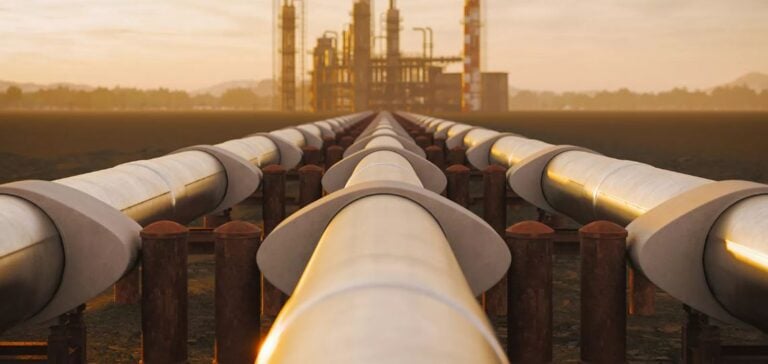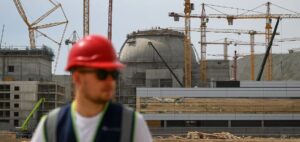The United Arab Emirates, Azerbaijan, and Brazil, respectively hosts of COP28, COP29, and COP30, have announced an increase in fossil fuel production by 2035. A report by the NGO Oil Change International, published on Wednesday, reveals that these three nations, organizers of global climate summits, plan a collective 32% increase in oil and gas extraction by the same year. This development raises concerns regarding these countries’ real commitment to climate goals, particularly the 1.5-degree warming limit established by the Paris Agreement.
In February, shortly after the conclusion of COP28, the three countries announced their intention to form a “COP presidencies troika” to ensure continuity in climate negotiations and foster increased cooperation. They also committed to incorporating in their national contributions for 2035 emissions reductions compatible with the 1.5-degree target. This pledge was intended to encourage other nations to adopt similar action plans by February 2025.
Climate Commitments Facing Economic Realities
Despite this formal commitment, projected oil and gas production figures contradict these stated objectives. According to data presented in Oil Change International’s report, Brazil plans to increase its fossil fuel production by 36% by 2035 compared to 2023, followed by the United Arab Emirates with a 34% rise, while Azerbaijan shows an estimated 14% increase. This growth in fossil projects directly contravenes the recommendations of the International Energy Agency (IEA), which calls for a 55% global reduction in fossil fuel production to meet climate commitments by 2035.
The NGO also highlighted the need for a strong example from the troika of COP presidencies. According to the organization, while major producing countries like the United States and Canada bear a significant share of responsibility, COP host countries are expected to lead by example in transitioning to cleaner energy sources. Without this commitment from the host countries, global emissions reduction goals could be severely compromised.
A Double Standard Criticized by Oil Change International
The NGO also criticizes Northern countries, responsible for a large share of global emissions due to new oil projects. According to a previous analysis by Oil Change International, the United States, Canada, the United Kingdom, Norway, and Australia would account for nearly half of the additional emissions projected by 2050 from new oil and gas wells. In light of this reality, the NGO argues that an immediate halt to fossil expansion is necessary in wealthier countries as well as in the troika nations.
This double standard between climate commitments made at international conferences and national fossil fuel production policies highlights the contradictions within COP host countries themselves. This situation raises critical questions about the ability of COP summits to drive a rapid and global energy transition.
Toward a Breakdown in Trust within Climate Negotiations
The gap between climate promises and fossil fuel production policies undermines the credibility of COP host countries, according to Oil Change International. By continuing their fossil expansion plans, these countries risk weakening their leadership position in global climate negotiations. For many observers, this inconsistency could harm the spirit of cooperation the COP summits aim to establish, where each nation is expected to contribute to a collective effort.
Thus, as COP29 is set to take place soon in Azerbaijan, the international community is watching closely for concrete climate commitments from these countries. By maintaining their fossil production increase plans, the troika may face heightened pressure to justify these decisions on the global stage, particularly from nations most vulnerable to the impacts of climate change.





















